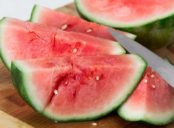Juice diet: A Comprehensive Guide to Reaping the Benefits

Introduction
In recent years, juice diets have gained significant popularity as a means of achieving weight loss, detoxification, and improved overall health. This article aims to provide an in-depth overview of juice diets, including their various types, popularity, and quantitative measurements. Additionally, we will discuss how different juice diets vary from one another and delve into the historical pros and cons associated with these regimens.
1. An In-depth Overview of Juice Diets

Juice diets, also known as juice cleanses or juice fasts, involve the consumption of solely fruit and vegetable juices for a specific period. These diets typically last from a few days to several weeks and are believed to facilitate detoxification by providing essential nutrients while giving the digestive system a break.
2. Presentation of Juice Diet Types and Popularity
There are several types of juice diets, each with its own approach and rules. The most common types include:
-Cold-Pressed Juice Diet: This method involves extracting juice using a hydraulic press to prevent nutrient loss and oxidation. Cold-pressed juices are often favored for their high nutrient content.
-Blended Juice Diet: In this approach, fruits and vegetables are blended into a smoothie-like consistency, including the fiber content. This allows for longer satiety and a slower release of sugars into the bloodstream.
-Intermittent Juice Fasting: This variant involves consuming juices for a specific period, followed by regular meals for the remainder of the day or week. It combines the benefits of fasting with the nutritional intake of juices.
-Commercial Juice Programs: Numerous companies offer pre-packaged juice programs, allowing individuals to conveniently follow a juice diet. These programs are often popular due to their ready-to-consume nature.
The popularity of juice diets can be attributed to their association with weight loss, increased energy levels, improved digestion, and glowing skin. Celebrities and influencers frequently endorse these regimens, further enhancing their appeal to the general public.
3. Quantitative Measurements of Juice Diets
To assess the effectiveness of juice diets, several quantitative measurements can be considered. These include changes in weight, body fat percentage, blood sugar levels, and nutrient intake. Studies have shown that juice diets can lead to significant weight loss, reduced body fat, and improved glycemic control. However, it is essential to note that these results may vary depending on the individual and the duration of the diet.
4. Differentiating Factors Among Juice Diets
Although all juice diets share the common principle of consuming juices, they differ based on factors such as duration, juice composition, and inclusion of solid foods. Longer juice diets tend to focus more on detoxification, while shorter ones may prioritize weight loss. Additionally, some juice diets allow for the inclusion of specific whole foods, such as nuts or seeds, while others strictly follow a juice-only regimen.
5. Historical Overview of Pros and Cons
Historically, juice diets have been praised for their ability to provide essential vitamins, minerals, and antioxidants in concentrated form. Advocates claim that these regimens can boost the immune system, improve digestion, and increase energy levels. However, critics argue that juice diets lack necessary nutrients like protein, fat, and fiber, which can lead to muscle loss, nutrient deficiencies, and temporary weight loss rebound.
Furthermore, juice diets may not be suitable for everyone, especially those with specific medical conditions, such as diabetes or kidney disease. It is crucial to consult with a healthcare professional before embarking on any restrictive diet plan.
Conclusion
In conclusion, juice diets offer individuals a potential pathway to weight loss, detoxification, and improved health. By understanding the various types, popularity, quantitative measurements, differentiating factors, and historical pros and cons of juice diets, individuals can make informed decisions about incorporating these regimens into their lifestyles. However, it is essential to approach these diets with caution and seek professional guidance to ensure they align with individual needs and goals.





















